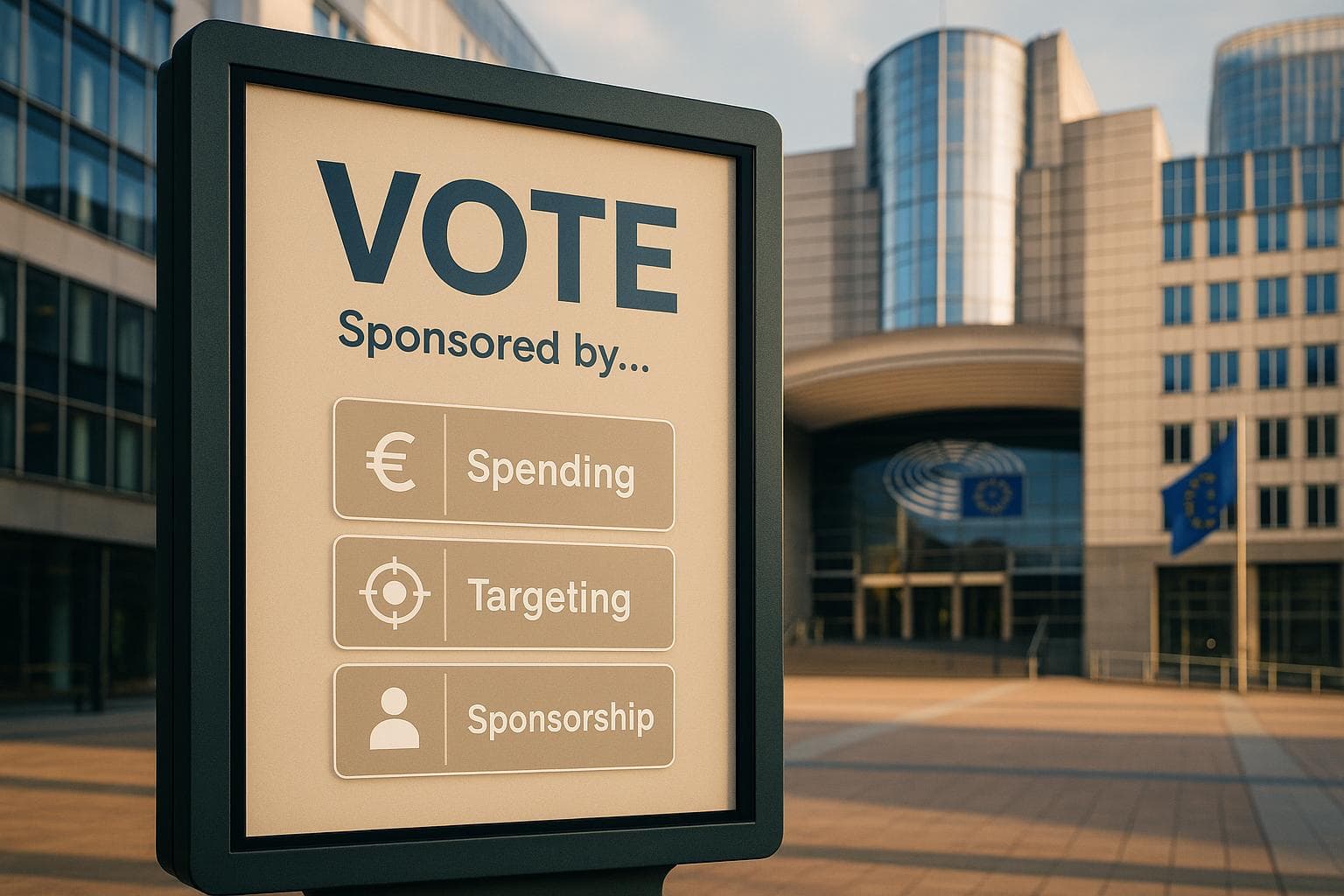EU mandates political ads disclosure under new transparency rules
EU requires political ads to disclose sponsors, targeting and spending; bans foreign-funded ads before elections.
In a significant move to enhance the integrity of elections, the European Union has introduced strict new transparency rules for political advertising. Effective October 10, 2025, these regulations require political advertisements across the EU to disclose critical information about their funding, targeting, and purpose. This ambitious step aims to counter hidden digital influences and safeguard voter privacy.
New Standards for Political Ads
Under the new framework, every paid political advertisement - whether it appears online, on television, or in print - must fulfill specific transparency criteria. Advertisers must clearly label their content and disclose essential information, including:
- The identity of the sponsor
- The amount paid for the ad
- The election or referendum the ad pertains to
- Any targeting or amplification techniques used
Additionally, online targeting is now restricted to instances where users provide explicit and separate consent for the use of their personal data for political purposes. Sensitive personal data, such as political opinions, ethnicity, or religion, is strictly prohibited from being used for profiling. The European Commission emphasized that these measures are designed to preserve both freedom of opinion and data privacy, preventing voters from being unknowingly manipulated by opaque campaigns.
Cracking Down on Foreign Influence
One of the regulation's key provisions is a ban on foreign-funded political advertisements within the three months leading up to elections or referendums in EU member states. This measure directly targets external interference, a concern that has plagued electoral processes in Europe and beyond over the past decade.
"Transparency is the antidote to manipulation", an EU official said, describing the regulation as "a cornerstone of Europe’s democratic resilience."
Safeguarding Democracy in the Digital Age
The transparency rules for political advertising are part of a broader EU effort to bolster democracy and counter disinformation. These measures build upon earlier initiatives, such as the European Democracy Action Plan introduced in 2020, which sought to combat disinformation and promote media freedom. Later this year, the European Commission is expected to unveil the European Democracy Shield, a strategy aimed at strengthening democratic values across the Union.
The new regulations also ensure that editorial content and personal opinions remain unaffected. According to the Commission, the rules "do not apply to journalism or private commentary", maintaining the separation between media independence and political advertising.
Preparing for Future Elections
With European and national elections on the horizon in 2026, these regulations underscore the EU’s commitment to leading globally on political transparency in the digital era. By turning political messaging into a more visible and verifiable process, the hope is to restore public trust in how political campaigns are financed and delivered.
The Commission's Directorate-General for Communication has issued detailed guidelines to help stakeholders, including advertisers, publishers, and service providers, comply with these new requirements.
Through these reforms, the EU aims to set a global precedent in digital accountability, ensuring that election processes remain fair, transparent, and free from undue influence. As the Commission put it, the goal is to make political messages "visible, verifiable, and voluntary", reiterating its commitment to protecting democratic processes in an increasingly digital and interconnected world.
Geoffrey G.










